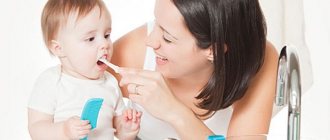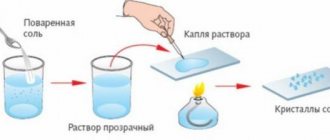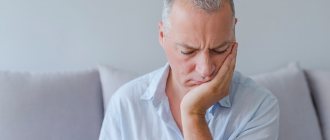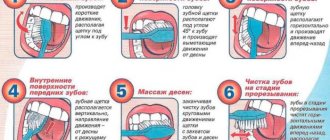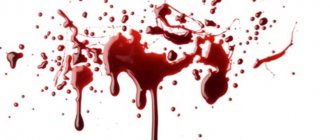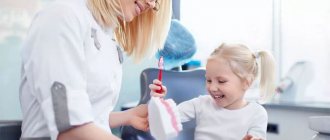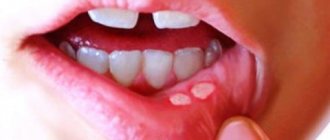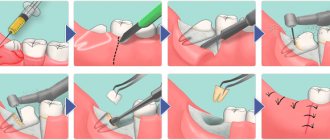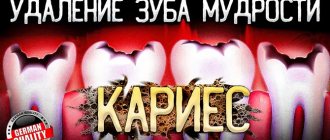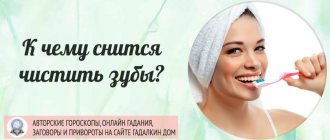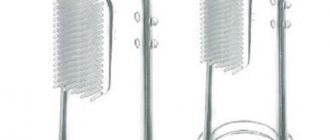Donating blood for analysis is a common procedure , even in some ways natural.
Whatever doctor we visit, be it a simple physical examination or a specific examination for any disease, a blood test is necessary.
But few people think that before collecting material they need to adhere to certain rules of “behavior”.
And in addition to restrictions on foods and drinks, when submitting the study material, in some cases it is not even recommended to brush your teeth .
What is the connection between such an “innocent” hygienic procedure and the reliability of the results of a blood test, and whether it is possible to brush your teeth before donating blood should be understood.
The procedure for donating blood for analysis
Note! Not a single examination, surgery, x-ray, appointment or even physical procedure is complete without a blood test.
This simple procedure allows a specialist to quickly assess the patient’s condition and identify possible deviations, even without general clinical signs of the disease.
Analysis of the material
can be venous or capillary , depending on the purpose of the study (sugar content, the amount of certain hormones, the presence of infections, pathologies and inflammatory processes, etc.).
Taking biochemistry
Biochemical analysis is a kind of “mirror” of the body . The slightest changes in his condition are reflected in the biochemical analysis.
Keep in mind! You should prepare for such an analysis by eliminating all possible causes of false indicators.
In addition to the ban on coffee, sugary drinks, smoking and alcohol , experts recommend not brushing your teeth using toothpaste before the analysis .
Especially when it comes to the study of glucose, urea and sugar.
It is necessary to take into account the quality of reagents that react to any external factors:
- toothpaste contains triclosan and other synthetic substances that have antibacterial properties, which, in turn, can affect the accuracy of the readings;
- saccharin contained in toothpaste directly affects blood glucose levels;
- foaming pastes with the addition of sodium lauryl sulfate affect changes in the protein composition of cells (nitrate compounds can accumulate in the circulatory system).
When prescribing a referral for this test, the doctor does not recommend morning brushing of teeth using toothpaste.
Microbiological and PCR studies
- The study is recommended to be carried out before starting antibiotics and other antibacterial chemotherapy drugs (if this is not possible, then no earlier than 12 hours after discontinuation of the drug).
- Avoid taking laxatives, administering rectal suppositories, oils, limit taking medications that affect intestinal motility (belladonna, pilocarpine, etc.) and drugs that affect the color of stool (iron, bismuth, barium sulfate) for 72 hours before stool collection .
- The material obtained after an enema, after taking radiopaque substances (barium during X-ray examination) is unsuitable for research.
Testing for hormones
You should know! A comprehensive examination of hormones (reproductive, thyroid and pituitary gland) is prescribed to identify serious changes in the body.
Blood material is examined venously, taken on an empty stomach only in the morning (from 8 to 11 am).
It is prohibited to take medications that can change hormonal levels, as well as alcohol, visiting a sauna, any stress (including physical), as well as emotional outbursts.
Peace, rest and a positive attitude are recommended.
The determining factors for the accuracy of the results are time, gender and age of the patient.
This is in no way related to brushing your teeth; in this case, there are no restrictions on the use of toothpaste.
For sugar
It is worth noting! In this case, along with serious restrictions on food and drinks (you can’t even drink sweet tea or water 8 hours before taking the material), there is also a ban on toothpaste.
What is the reason for this limitation?
The fact is that any, even the most natural toothpaste contains sugar .
It is absorbed through the mucous membrane into the blood and naturally affects sugar levels in the circulatory system.
To avoid distortions in the results of a blood sugar test, and therefore not to donate the material again, you should avoid brushing your teeth using toothpaste immediately before the procedure.
Hormonal studies
On the eve of the test, high-fat foods should be excluded from the diet; the last meal should not be large.
Before donating blood for cortisol, you need to calm down, and when donating blood, get distracted and relax, since any stress causes an unmotivated release of these hormones into the blood, which will lead to an increase in this indicator.
The results of hormonal studies in women of reproductive age are influenced by physiological factors associated with the stage of the menstrual cycle. Therefore, sex hormone testing is carried out on certain days:
- LH, FSH on days 3-5 of the cycle
- estradiol on days 5-7 or 21-23 of the cycle
- progesterone on days 21-23 of the cycle
- prolactin, 17-OH-progesterone, DHA sulfate, testosterone on days 7-9 of the cycle
- Anti-Mullerian hormone (AMH/MIS) For women, the test is carried out on days 3-5 of the menstrual cycle. 3 days before taking blood, avoid intense sports training. The study should not be performed during any acute illness. Do not smoke 1 hour before taking blood.
Thyroid hormones
During the initial check of thyroid hormone levels, discontinue medications that affect thyroid function 2-4 weeks before the test (after consultation with your doctor). When monitoring treatment, exclude taking medications on the day of the study and be sure to note this on the referral form (also note information about taking other medications - aspirin, tranquilizers, corticosteroids, oral contraceptives).
Viral hepatitis
Before donating blood, 2 days before the test, it is advisable to exclude citrus fruits, orange fruits and vegetables from the diet.
Blood test for donation
Stay up to date! In any donor center, after registration, a step-by-step examination of the blood of a potential donor is carried out:
- in the laboratory, material is taken from a finger to determine the blood type, Rh factor and the amount of hemoglobin;
- a transfusiologist, as a result of an examination, based on capillary examination, gives permission for donation;
- All donated blood is examined for the presence of HIV infection, and is also tested for all types of hepatitis and syphilis.
Before the donation , it is mandatory to drink sweet tea with cookies or other baked goods to ensure the donor’s normal well-being.
Therefore, the issue of prohibiting brushing teeth is not discussed; the hygiene procedure is not an obstacle to this manipulation.
Before gastroscopy
First of all, you should understand what gastroscopy is and for what purpose this examination is prescribed.
Need to know! Gastroscopy is an examination of the stomach with a special flexible probe (gastroscope).
A special light bulb is attached to one side of such a device, and a camera is attached to the other, with the help of which the state of the stomach is recorded on the screen.
The probe is inserted through the mouth, passes the esophagus and enters the stomach, examining it
for fibrous formations, ulcers and polyps.
Gastroscopy also allows you to take a sample of stomach tissue for a biopsy.
How to properly prepare for such an examination?
First of all, the stomach must be empty, and the patient must not eat anything (6-8 hours) or drink anything (2 hours) before the procedure.
Remember! Blood must first be donated to identify various side diseases, as well as to prevent unwanted complications:
- a general (clinical) analysis is prescribed to identify pathologies and inflammatory processes in the body;
- determination of blood type and Rh factor is necessary to prevent unwanted reactions and complications;
- a coagulation test is prescribed to identify various disorders in the hemostatic system, since minor bleeding is possible when a gastroscope is inserted;
- the presence of hepatitis B and C antibodies, HIV infection is a risk area for infection of the doctor and staff.
These tests have nothing to do with brushing your teeth, and the use of toothpaste will not in any way affect the reliability of the results (the number of white blood cells, hemoglobin and platelets, red blood cell speed, etc.).
Keep in mind! If the patient is prescribed a biochemical blood test, then you should refrain from brushing your teeth using toothpaste immediately before taking the test (see biochemical blood test).
General rules for preparing for hair analysis
Scalp hair is the most preferred biomaterial for research. Hair from other areas of the body should only be used if there is no hair on the head.
- Stop using hair treatments 2 weeks before submitting your hair for analysis. Dyed, bleached, permed hair is not suitable for research. You must wait until enough hair has grown back to collect a hair sample.
- Hair should be clean and dry (it is advisable to wash your hair no later than 24 hours before collecting hair). Before the study, it is not allowed to apply any cosmetic or medicinal products (creams, oils, gels, etc.) to the hair.
- Avoid professional contact of hair with external contaminants (welding, mining) between shampooing and hair collection.
- Before collecting hair, thoroughly wash and dry your hands and scissors.
Oral hygiene rules without using toothpaste
People are accustomed to brushing their teeth from an early age, and recently both advertising and newfangled medical TV shows, forums and blogs have been aimed at improving this process.
New electric multifunctional brushes for children and adults are being invented, toothpastes with incredible composition and effect are being advertised.
But one point is missed here - brushing your teeth at night is important.
It is the “overnight” leftover food that harms dental health; the morning procedure is more likely to eliminate psychological discomfort (odor, plaque, etc.).
Therefore, by brushing your teeth thoroughly before going to bed, in the morning (if required by the doctor before donating blood), you can do without toothpaste.
You should know! What can replace morning brushing of teeth:
- In the evening, on the eve of the morning blood test, you should thoroughly brush not only your teeth, but also your tongue, gums and the inside of your cheeks. It is in these places that a huge number of microbes accumulate.
- In the morning , you need to brush your teeth and tongue without toothpaste to remove plaque and freshen your mouth.
- Be sure to rinse your mouth with water or a special solution (10 - 12 drops of hydrogen peroxide per 250 grams of warm water). Rinsing will remove bad breath and neutralize bacteria that appeared at night.
It is prohibited before taking blood tests .
This is explained by the fact that, in addition to sugar, they contain many harmful synthetic compounds, dyes and flavors that can affect the results of the analysis.
Rules for sputum collection
Sputum must be collected in a container (container) in the morning before meals. You should first brush your teeth and rinse your mouth and throat with boiled water to prevent the ingress of food debris and oral microflora. Only sputum produced during a coughing attack should be collected, not expectoration.
Sputum culture
Morning sputum produced during a coughing attack is collected in a sterile, disposable 60 ml container. Before coughing, the patient brushes his teeth with a brush without toothpaste and rinses his mouth with boiled water in order to mechanically remove food debris, desquamated epithelium and oral microflora. Collect the sputum in a sterile container and transport it to the laboratory.
Test for atypical cells (Cytology)
The morning portion of sputum obtained before meals, after rinsing the mouth with water and deep coughing, is collected in a sterile disposable 60 ml container. In order to prevent the destruction of pathological cells, 70% alcohol is added to the material as a stabilizer, proportion 1:2 (1 part alcohol and 2 parts sputum). The time from receipt of the material to its preservation is no more than 2 hours.
SALIVA (PCR method)
- Before collecting saliva, you should rinse your mouth three times with saline solution.
- Saliva should be collected in an amount of at least 5.0 ml in a sterile, disposable 60 ml container.
- After receiving the saliva, screw the lid of the container tightly and label it in accordance with the direction form.
- Do not allow the material to dry out!
Useful video
From this video you will learn how to brush your teeth correctly and what mistakes you should avoid:
In conclusion, it should be noted that everyone decides for themselves whether or not to brush their teeth before taking a blood test.
It all depends on the degree of responsibility and attitude of the patient towards his health.
But if the doctor “prescribed” such restrictions for the most accurate results, then you should probably listen to them, and it won’t be too difficult to do without such a familiar procedure once.
Smear in women
At least 36 hours must pass after the last sexual intercourse.
If you were treated with antibiotics, you must first complete the course of treatment, and then wait at least 3 weeks before taking the test.
You cannot take a smear test if women are menstruating or have uterine bleeding.
Before taking a smear, you should not wash yourself, much less use antibacterial soap.
You should not urinate for at least 3 hours before the test. The rule applies to both women and men.
If women have not yet completed treatment, they are taking medications, inserting vaginal suppositories, they must tell the doctor about this, then they cannot take a smear.
